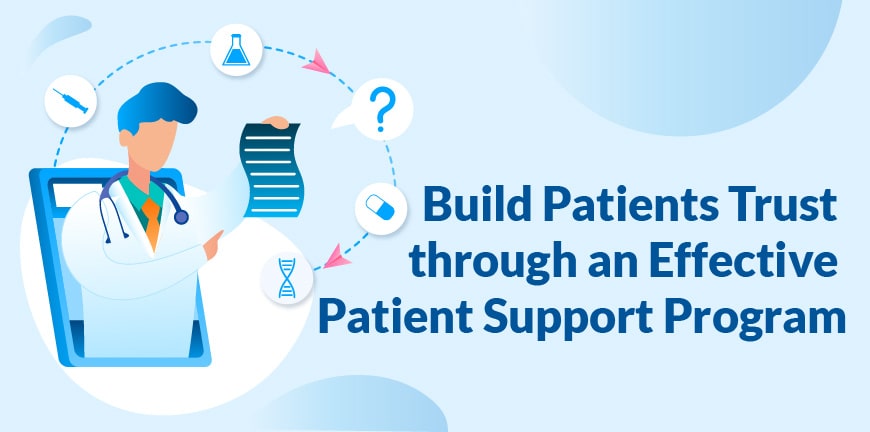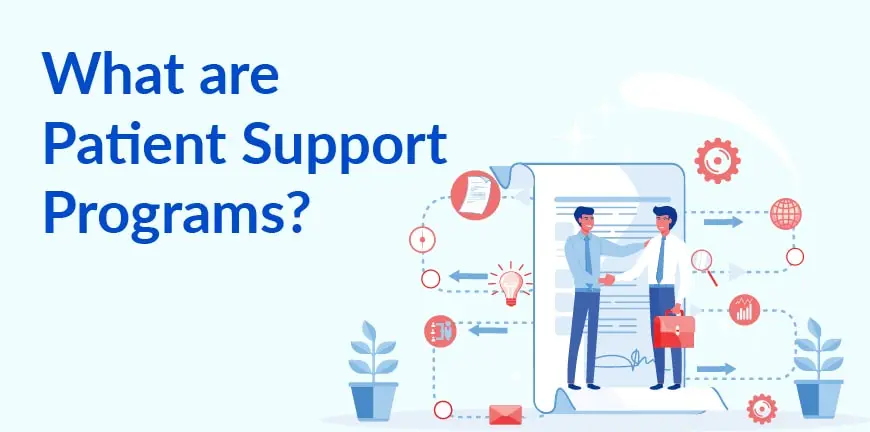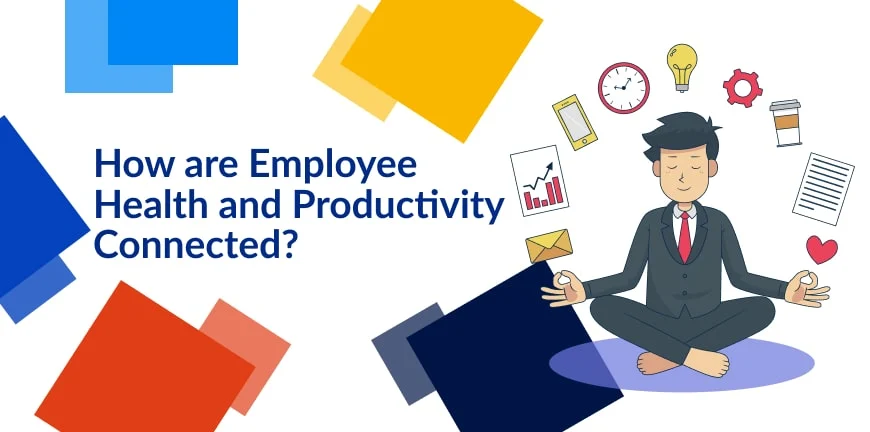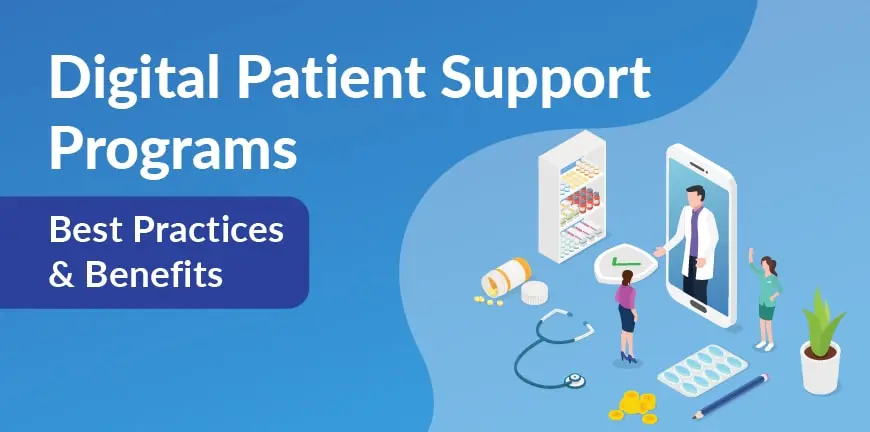
What Is Non-Compliance? Consequences for Businesses (2026)
25/08/2023
Embracing Neurodiversity at the Workplace
31/08/2023What do you think makes a good patient experience?
According to research, patients agree that having a doctor or nurse who listens to them, cares, and takes enough time to explain is the most important aspect of making a good healthcare experience.
But with doctors being able to spend only a mere 15 minutes with a patient, is it possible to build that trust? Each patient, their tendencies, their problems, the duration of their recovery, period of assistance they may require vary. So, what is the solution to address this challenge? How can the healthcare sector improve its effectiveness in addressing patient care?
The Glaring Shortfall in Patient Care
In the healthcare industry, patient care and safety are priorities. And while in the past, the process of monitoring and assessing drug safety(pharmacovigilance) relied on healthcare professionals, it just was not enough anymore, as the patient-to-healthcare professional ratio kept increasing. A patient-centric approach was clearly not possible with the aid of just healthcare professionals as it requires personalization. And from what we can see, patients expect a level of personalization for medical care. Data suggests that around 63% of patients are willing to share their data with pharma companies for more personalization.
Thanks to the rapidly advancing capabilities, companies are readily moving into partnerships to move from a “one size fits all” attitude to a 1:1 personalized patient support approach. Additionally, it has been established that 97% of companies plan to invest heavily in patient care and support.
What is PSP (Patient Support Program)?
Patient Support Programs are an umbrella term used by pharmaceutical companies to define their initiatives that improve access and adherence to prescribed medication. PSPs (Patient support programs) can include financial components, focus on being purely educational, or be a combination of both.
While Patient Support Programs are often perceived as supplemental rather than a critical part of drug administration, the value they bring to the community and company is inherent and, most importantly, is expected of the pharmaceutical industry.
Before understanding how to build trust with patient support programs, look at the IQIVA analysis that showed PSPs’ motivators and Drivers.
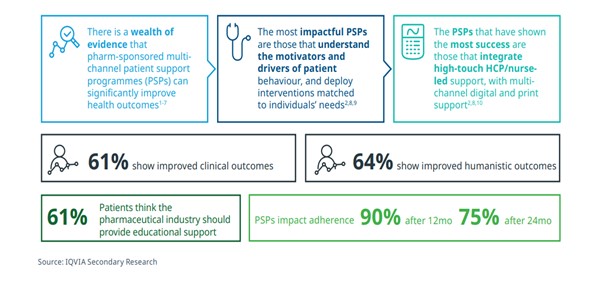
Source: IQVIA Secondary Research
Patient Engagement Lies at the Heart of a Thriving PSP
A patient support program encompasses a range of services, communication strategies, and initiatives aimed at enhancing patient engagement, education, and empowerment.
Patient-centricity is the secret to the success of a Patient Support Program. Let us look at some pointers that can ensure better experiences and outcomes for the patients post-treatment.
Understand the patients’ needs! They are your top priority.
Problem:
When a patient is prescribed a medication, a myriad of processes are triggered that are collectively managed by patient services teams, pharmacy partners, etc. While they aim to help the patient gain access to the medications in as little time as possible, often, their efforts are diverted due to complicated paperwork needs and approvals, resulting in delays in fulfilling the patient’s need. This contributes to prescription abandonment, discontinuation of treatment.
Solution:
While offering practical and financial support to start the treatment is what you need to do, you need to go above and beyond just the practicalities to enhance your patient care. To drive long-term engagement and a better experience –
- Ensure an easy enrolment process.
- Be a belief-based support system and address their real concerns- ask them about their specific areas of concern or what other information they need.
- Leverage a program enrolment tool when the treatment commences to identify the kind of support the patient needs.
Be compassionate, and leverage the health psychology of patients
Patient belief is a key factor that influences health behaviours like medication adherence or the pursuit of follow-up tests. Leveraging health psychology-driven research helps understand what drives patient behaviour. Health psychology also indicates the types of interventions that can help in changing behaviour.
Example
To adhere to the medication, a patient needs to understand why the treatment is important to their care and long-term control of the condition.
How can you help? By introducing disease education and tools to support effective doctor-patient dialogues and help them commit to the treatment plan wholeheartedly.
If patients feel stigmatized by their condition, they need different interventions to reduce negative feelings and provide reassurance.
In such a case, try an approach where you share patient stories, create caregiver resources, or encourage patients to access community support services. Remember it is all about the right intervention at the right time.
P.S. Your program must adapt to individual patient inputs and responses to the enrolment tool. In other words, Personalize. It shows your respect and compassion.
Define and communicate the goals of your program
Pharma Companies, by nature, are data-driven organizations. Evidence of how well the medications and interventions are working is what motivates them.
Channelize patient support by including KPIs for each phase of the patient treatment journey. Inclusion of metrics to deliver patient-centric support.
- Ensure that the required SOPs, contracts, and training programs are completed. Make sure the resources are ready and the approval is passed for all the content and material.
- Track the number of patients enrolled and the productivity and efficiency of the workflows of the program.
- Get patient feedback and satisfaction scores
- Follow the prior steps diligently to ensure adherence and persistence.
Note: Do not overlook patient belief metrics. They help assess how well your PSP is addressing the patient’s needs for information and support.
Enable support specialists
Your Patient support program must be able to provide a singular and complete view of patient interactions, preferences, and always needs. By enabling support specialists, you can improve patient and provider experiences by removing redundancies in information gathered during appointments or conversations.
For example, a patient is taking treatment for metastatic cancer. This means they must undergo tests and get screened every two or three months to see if their cancer has spread. These screens produce high anxiety in patients. Approach these touchpoints with empathy. Provide them with a bit of light and comfort. Schedule a call and ask, “How are you? We wish you well, since you have a scan coming up, and we are here for you if you have any questions.
Patient-Centric PSPs are the Way to Go
Building trust with patients through a patient support program requires dedication, consistency, and a patient-centric approach. By prioritizing effective communication, empathy, education, and empowerment, you can create a supportive environment where patients feel valued and well-cared for.
One of the key drivers of a successful PSP is patient behaviour. By enforcing belief-based support and communications, strong results desired patient behaviour can be generated. The roadmap for success towards building trust with patients is clear: put patients first; identify and understand their needs and concerns; then engage them with “compassionate,” personalized interventions.
Whether comprehensive or limited, patient support plays a vital role is sustaining therapy for better health outcomes. As their patient support provider, you need to fully commit to helping patients achieve their health goals with a completely patient-centric patient support program.
Contact Us For Business Enquiry

Dr. Neha Joshi
Dr. Neha Joshi is the Business Head at Alp Consulting Ltd., bringing over 15 years of diversified experience in operations management, business strategy, and client excellence across healthcare and consulting sectors. Her expertise lies in driving operational transformation, enhancing customer experience, and building scalable business processes. Having held key leadership roles at Rivaara Labs, Suburban Diagnostics, and Portea, Neha combines strategic insight with execution excellence to deliver impactful, sustainable growth.

